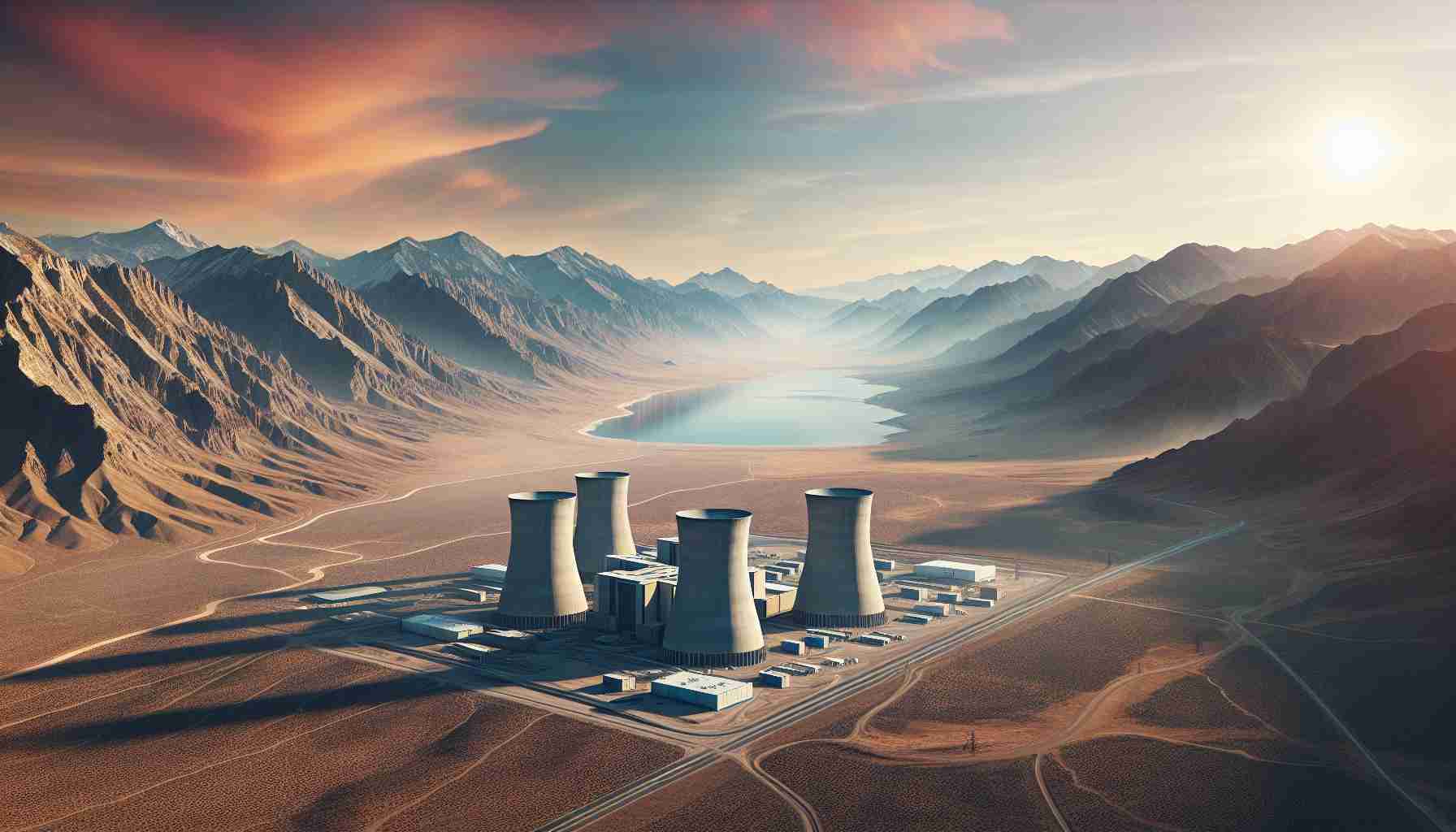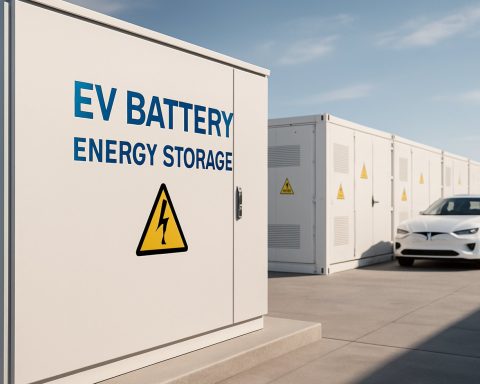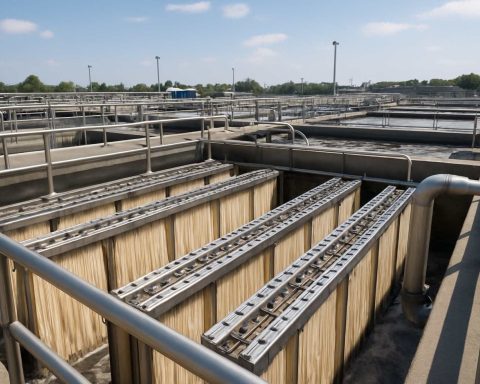Utah’s legislative journey towards nuclear energy has begun. On Monday, the House Public Utilities and Energy Committee reached a significant milestone by endorsing HB249, a bill that proponents claim could set the stage for the state to harness nuclear power within the next ten years.
The current session, dominated by the Republican majority, has focused heavily on energy solutions, particularly the potential of nuclear power. The legislation, introduced by Representative Carl Albrecht from Richfield, proposes the creation of a Nuclear Energy Consortium. This entity will guide nuclear energy initiatives in Utah and help establish the necessary regulatory framework. Albrecht emphasized the significance of modern advancements in nuclear technology and affirmed that this bill positions Utah as a forward-thinking player in energy production.
During the public discussion surrounding the bill, a variety of opinions were expressed. Some concerns centered around the risks associated with nuclear waste and the imperative to safeguard residents of Utah. Others questioned the economic feasibility of nuclear energy. A few attendees urged caution, suggesting that legislators should proceed thoughtfully.
Despite the expressed concerns, Albrecht acknowledged the need for additional focus on health and safety measures, expressing confidence in the legislation’s future adjustments. Joel Ferry, the executive director of the Utah Department of Natural Resources, heralded the bill as a promising first step toward nuclear energy in the state within the next decade. The next phase will see HB249 presented to the entire House of Representatives for consideration.
Navigating the Future of Energy in Utah: The Broader Implications
Utah’s pursuit of nuclear energy is poised to reverberate beyond its borders, impacting the global economy and societal paradigms regarding energy consumption. As nations grapple with climate change and energy demands, states like Utah may become pivotal players in the nuclear renaissance. This initiative may provide a template for other regions mulling similar pathways, spurring a larger shift towards low-carbon energy sources.
The proposed Nuclear Energy Consortium underscores a broader shift within American energy policy: a consolidation of resources and expertise to enhance regulatory frameworks while fostering technological innovation. As nuclear technology evolves—evidenced by advances in small modular reactors—it holds the promise of increased energy efficiency and reduced waste compared to traditional sources. If successful, Utah’s strategy could signal a much-needed revival of nuclear power’s role in the U.S. energy portfolio, especially amid fluctuating reliance on fossil fuels.
Moreover, the long-term implications of this legislative endeavor extend into environmental realms. A nuclear-centric approach may lead to significant reductions in greenhouse gas emissions, fostering sustainable practices to address ecological concerns. Nonetheless, the responsible management of nuclear waste remains a critical touchstone; failure to effectively address this issue could undermine public trust and acceptance.
As Utah navigates its legislative landscape, the outcomes may not only shape state policy but could also stand as a catalyst for global discussions on sustainable energy practices, ultimately influencing societal attitudes towards nuclear energy, a critical component of the future energy mix.
Utah Embraces Nuclear Energy: A Future of Innovation and Sustainability
Utah’s Legislative Shift Towards Nuclear Energy
Utah’s journey into the realm of nuclear energy is gaining momentum as legislative efforts solidify the state’s commitment to exploring this advanced energy solution. The recent approval of HB249 by the House Public Utilities and Energy Committee marks a pivotal moment, indicating serious intent to incorporate nuclear power in Utah’s energy landscape within the next decade.
Key Features of HB249
Nuclear Energy Consortium: The bill proposes the establishment of a Nuclear Energy Consortium to guide and oversee nuclear energy initiatives in Utah. This organization aims to streamline efforts to integrate nuclear technology while developing a robust regulatory framework that aligns with modern safety and operational standards.
Modern Advancements: Representative Carl Albrecht advocates for the potential of advanced nuclear technologies, which promise not only enhanced efficiency but also increased safety compared to traditional nuclear reactors. Innovations such as small modular reactors (SMRs) may offer viable options for future energy generation.
Pros and Cons of Nuclear Energy in Utah
Pros:
– Energy Independence: Nuclear power can reduce reliance on fossil fuels and importation of energy, providing Utah with a more self-sufficient energy profile.
– Sustainability: Advanced nuclear technologies generate lower greenhouse gas emissions compared to fossil fuel alternatives, promoting a greener energy future.
– Job Creation: The development of nuclear energy projects can stimulate local economies and create high-skilled job opportunities in engineering, construction, and operations.
Cons:
– Nuclear Waste Management: Concerns about the safe disposal and management of nuclear waste remain a significant challenge, requiring robust solutions.
– Public Safety Risks: Despite advancements, the potential risks associated with nuclear accidents and environmental contamination necessitate thorough risk assessments and public trust-building.
– Economic Feasibility: The financial aspects of establishing nuclear energy infrastructure—from initial investment to ongoing operational costs—have raised questions on economic viability.
Market Insights and Trends
As energy demand continues to rise amid climate change concerns, many states, including Utah, are exploring nuclear energy as a clean, reliable power source. Recent surveys indicate growing public interest in nuclear energy solutions, particularly as technological innovations make these systems safer and more efficient.
Health and Safety Measures
In response to community concerns, Representative Albrecht has committed to ensuring that health and safety considerations remain at the forefront of all nuclear initiatives. Future legislation will likely include protocols to monitor and mitigate risks associated with nuclear energy production.
Expectations for the Future
With the bill advancing to the House of Representatives for a broader discussion, expectations are high for a thoughtful legislative process. Continued public engagement and expert input will be crucial in shaping the future of nuclear energy in Utah. As this story develops, stakeholders are watching closely to see how it unfolds in the coming months.
For those interested in renewable energy advancements and the future of energy policy in Utah, visit Utah’s government website for updates and detailed information on legislative actions and initiatives.











